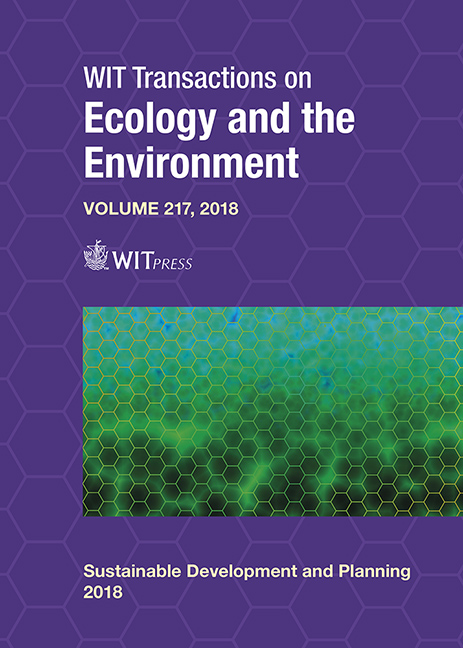THE DISTRIBUTION SYSTEMS OPERATOR’S ROLE IN ENERGY TRANSITION: OPTIONS FOR CHANGE
Price
Free (open access)
Transaction
Volume
217
Pages
12
Page Range
411 - 422
Published
2018
Size
307 kb
Paper DOI
10.2495/SDP180371
Copyright
WIT Press
Author(s)
ERIKA ZOMERMAN, HENNY VAN DER WINDT, HENK MOLL
Abstract
Distribution Systems Operators (DSOs) are key players in the design and development of a Local Energy System (LES). These systems need to adapt to the fast replacement of fossil fuels by Renewable Energy Sources (RES). With regard to this energy transition, the all-electric system is one of the potentially sustainable, future LESs. However, DSOs face problems in the development of such systems in relation to their role. They wonder how they must adapt their current design process in order to better facilitate energy transition and include values such as participation and the distribution of costs and benefits, which are seen as important by residents and other stakeholders. The purpose of this research is to consider the role of values in the design process of LES by using a value sensitive design method. A case study was set up in a newly built Dutch all-electric neighbourhood using electric heat pumps. Ten semi-structured interviews were held with DSOs’ representatives and other experts. The study resulted in a description of the current and desired design process in the light of the DSOs’ three core values: reliability, affordability and sustainability. We conclude that these are substantive values that relate to the technological artefact. However, four procedural values appear to be of importance too: participation, communication, trust between parties, and distribution of costs and benefits. A value based design approach for LES enables DSOs to better facilitate energy transition. In order to reach this, DSOs, (urban) planners, policymakers, real estate developers and residents have to cooperate in a transparent way during earlier phases in urban planning. More flexibility in the financial structure of investment and operational costs and benefits is required in order to enable future proof energy systems like all-electric neighbourhoods.
Keywords
energy transition, distribution systems operator, local energy systems, value sensitive design, substantive values, procedural values, design process, all-electric neighbourhood





